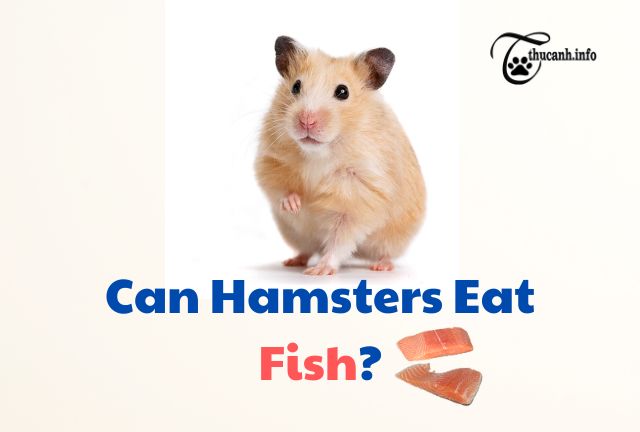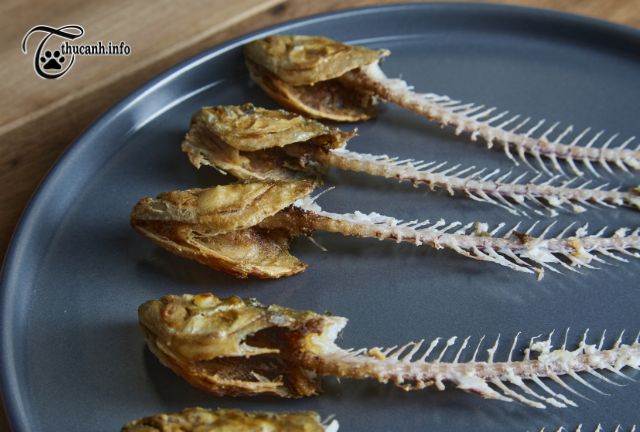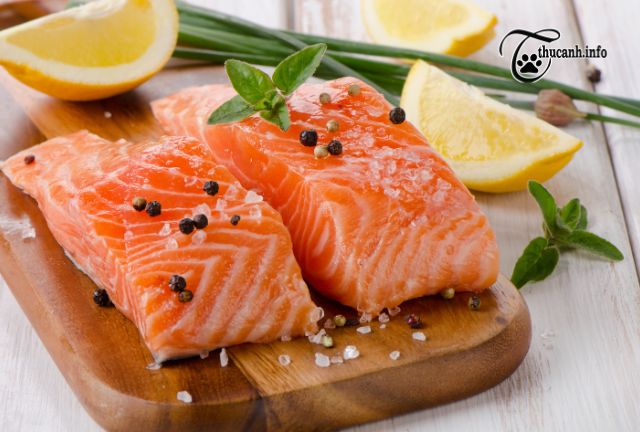Can Hamsters Eat Fish? Hamster owners seeking a balanced diet often ask this. Despite being herbivorous, hamsters may eat some animal products. This detailed tutorial will cover feeding fish to hamsters and their nutritional needs.

Can Hamsters eat cooked fish
1. Can Hamsters Eat Fish Meat?
Hamsters eat fish. Salmon, trout, and sardines are rich in omega fatty acids that enhance hamster brains and hearts. Their health depends on these nutrients. Hamsters should be fed fish in moderation and properly prepared.
2. Fish Nutrition
Fish in tiny amounts benefits hamsters:
- Protein: Hamsters need high-quality protein to grow and thrive. Protein is essential for tissue healing, immunological support, and organ function.
- Omega-3 fatty acids: Salmon and trout are high in omega-3 fatty acids. Hamsters benefit from these necessary fatty acids. Omega-3 fatty acids improve brain function, skin, and hair, and reduce inflammation. They improve cardiovascular health and lower disease risk.
- Minerals: Hamsters benefit from fish minerals. Potassium regulates cardiac function and fluid balance. Healthy bones, teeth, nerves, and muscles require magnesium. Energy and bone health require phosphorus. Red blood cells and oxygen delivery require iron.
- Vitamin D: Calcium absorption and bone health depend on vitamin D, which is found in fish. Vitamin D aids immunological function and cell development and differentiation.
In moderation, fish is healthy for hamsters. To keep your hamster safe and healthy, consider the fish kind and cooking procedure. Consult a doctor or pet nutritionist for hamster-specific food advice.

Fish bones can pose a choking hazard to hamsters
3. Hamster Fish Feeding Risks
Fish is nourishing, however there are risks:
- Fish bones may choke hamsters. Sharp ones might become caught in their throat or digestive tract. Your hamster needs boneless fish.
- Mercury and toxins: Some fish have high mercury and toxin levels. These compounds can cause neurological and organ harm in your hamster. Avoid poisons and pick low-mercury seafood.
- Digestive issues: Hamsters do not consume fish naturally. Too much fish might cause diarrhea or vomiting. To make sure your hamster can stomach fish, give it in moderation and watch their reaction.
- Thiaminase in raw fish breaks down vitamin B1 and might cause health problems.
Hamsters, like people, can be allergic to fish. To reduce these dangers, buy boneless fish with low mercury levels, introduce it gradually, prepare it well, and watch your hamster for responses.
4. Hamster Fish Recipes
- Fish Preparation
Avoid oil, salt, and spice while cooking hamster fish. Steam or boil fish to maintain nutrients and remove impurities. Cut the fish into bite-sized pieces for your hamster.
- Fishbones and Choking Hazards
Fish bones can splinter and choke hamsters. Give your pet boneless fish. This prevents digestive system damage.
- Serving sizes and frequency
Hamsters shouldn’t eat fish, so give it as a treat. Give your hamster little amounts of cooked fish and observe. Consult a vet for stomach disorders or discomfort.

Salmon – Recommended Fish for Hamsters
5. Hamster Fish: Offer and Avoid
- Hamster-Recommended Fish
Hamsters prefer seafood with higher nutritional value and lower mercury levels. Salmon, trout, and sardines are safer. Always feed your hamster safe seafood. Salmon, trout, and sardines are safer.
- Hamster-Unfriendly Fish
Hamsters should avoid tuna and other mercury-rich seafood. Given their stature, mercury can injure them. Sardines and anchovies are low-mercury fish.
6. FAQs
- Cooked fish for hamsters?
Hamsters consume cooked fish. Boneless and moderately provided, it is safe and nourishing for kids.
- Sushi and sashimi for hamsters?
No sushi or sashimi for hamsters. Hamsters may get stomach difficulties or thiamine shortage from these raw fish diets.
- Fish skin for hamsters?
Hamsters should avoid fish skin. Hamsters may have trouble digesting skin.
Remember to introduce different foods to your hamster slowly and observe their reaction. Stop giving that meal if it causes discomfort or reactions. Always choose a diet that benefits your hamster.
Conclusion:
To conclude, hamsters can eat fish. Hamsters can consume fish with some restrictions. After eating fish, your hamster should be monitored for stomach difficulties. If fish respond badly, stop feeding and see a vet.
Source: Thú Cảnh


